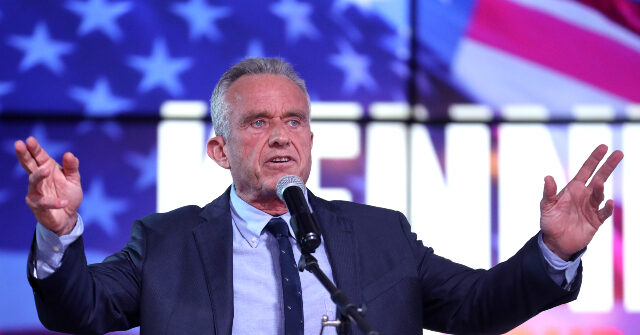Robert F. Kennedy Jr. has been nominated by President-elect Donald Trump to serve as the Secretary of Health and Human Services (HHS). This appointment aligns with Trump’s broader agenda to overhaul public health agencies, purging them of what Kennedy describes as the “smothering cloud of corporate capture.” Kennedy has publicly emphasized his commitment to this mission, aiming to revitalize the HHS into an institution that prioritizes the health and safety of Americans. Specifically, Trump has expressed concern over the influence of the industrial food and pharmaceutical complexes, categorizing these sectors as deceptive forces undermining public health.
In his announcement, Trump underscored the importance of the HHS in protecting citizens from harmful substances, including chemicals, pollutants, and potentially dangerous pharmaceutical products. He framed Kennedy’s appointment as a pivotal move to restore integrity and transparency within health departments. This aligns with Kennedy’s stated goal of returning to a traditional foundation of gold-standard scientific research, aiming to address the chronic health crisis affecting the nation. The underlying message from both Trump and Kennedy is one of responsibility and accountability, focused on reversing the impacts of corporate interests in health policymaking.
Expressing enthusiasm for his forthcoming role, Kennedy articulated a vision that he believes can unify diverse expertise in science, medicine, and government to effectively tackle what he sees as a burgeoning chronic disease epidemic. He has a clear agenda: to liberate health agencies from corporate influence, amplify transparency, and encourage evidence-based practices and decision-making. His commitment to honesty as a public servant resonates with a populist perspective that appeals to many Americans who feel alienated by conventional health policies shaped by corporate interests.
Kennedy has leveled criticisms at the Food and Drug Administration (FDA), challenging their approach to various health-promoting therapies including psychedelics, stem cells, and nutraceuticals, which he believes have been suppressed to favor the financial interests of pharmaceutical companies. This notion of a systemic “war on public health” proposed by Kennedy reflects deeper concerns regarding the accessibility of alternative health options that do not generate profits for large companies. His willingness to confront these issues highlights a radical shift in health policy aimed at prioritizing patients’ interests over corporate gain.
As an advocate of significant changes in how health information is conveyed, Kennedy emphasizes transparency as a central pillar of his new role. He aims to ensure that the American public has access to essential health data, empowering them to make informed decisions about their wellbeing. This approach can potentially alter the landscape of public health communications, seeking to replace the opaque practices of the past with clear, accessible information. Moreover, he has pledged to address what he describes as corruption within health agencies by reducing the revolving door between government and industry.
Overall, Kennedy’s nomination presents a controversial yet potentially transformative opportunity for the HHS under Trump’s administration. His vision of “Making America Healthy Again” challenges established norms in public health policy and aims to address chronic health issues through an evidential, transparent, and patient-centered framework. While this appointment has sparked debates about the future of public health governance and the role of corporate interests, Kennedy’s declared mission resonates deeply with a segment of the population eager for reform and accountability in health and wellness. As Kennedy prepares to assume his responsibilities, many will be watching closely to see how his plans translate into practical changes within the HHS and public health at large.

